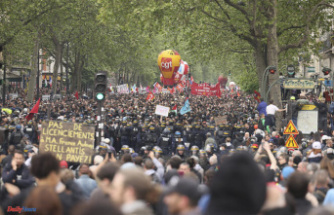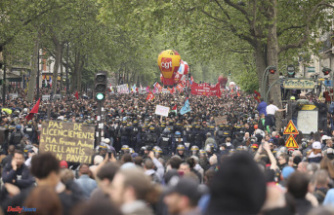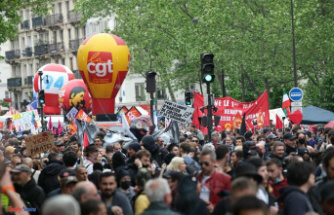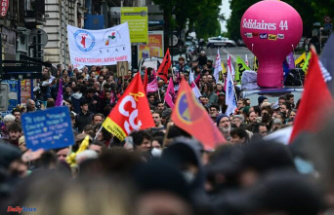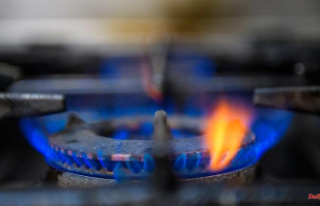In its relief paper, the traffic light outlines in 20 sections how it intends to help large parts of the population in the coming months. But not everyone will benefit to the same extent. Some burdens in the current crisis hardly occur or do not occur at all.
In its relief paper, the traffic light outlines in 20 sections how it intends to help large parts of the population in the coming months. According to the coalition, 65 million euros will be distributed in this way. To children at risk of poverty, electricity customers, public transport users and taxpayers. But not everyone will benefit from the measures to the same extent. Some burdens in the current crisis hardly occur or do not occur at all. There are gaps in the relief package:
Of all the burdens of the energy crisis, it is the greatest and for many households the most immediate: the explosion in gas prices. Around half of Germans heat with gas, the energy source whose most important supplier has almost completely failed and whose price has already tripled or quadrupled for many consumers and will continue to rise significantly in the coming months. Many families face an additional burden of several thousand euros in the upcoming heating season. Unless the state helps, it could even mean financial ruin.
But while the traffic light coalition goes into detail about the electricity market in its new relief package and sets out a procedure with which a price cap for basic consumption should be introduced and financed for all households, when it comes to gas, it just says "let's see". A commission of experts is to be set up to examine whether help can be provided at all. It will probably be a long time before a relief procedure is found and implemented for gas, probably too much time for households with gas heating and without a thick financial cushion.
For Monika Schnitzer, the subject of gas is one of two "unresolved issues" in the relief package. The second, said the economics professor to the "Handelsblatt", is the "lower middle class". In other words, the people who earn just enough to benefit from the planned expansion of housing benefits or the increase in unemployment rates, but who were only just able to cover their expenses before the crisis. These people will only benefit to a lesser extent than those on high incomes from the planned tax relief as part of the reduction in cold progression.
According to Schnitzer, one problem is that even after years of permanent crisis, there is no way for the federal government to make direct payments to this group quickly and easily, as is the case for recipients of state transfer payments, for example.
CDU boss and opposition leader Friedrich Merz also complains that there is not enough help for these people from the lower middle class. You should have done more for those who are just above the limits," said Merz on ARD. And Merz also knows which group will still feel forgotten: the companies and especially small and medium-sized companies. The German one The economy will complain massively in the next few days "that they are not thought of," said Merz.
It is not true that the traffic light did not think of the companies. Smaller companies should benefit from the electricity price cap just as much as private households. In addition, an entire chapter is dedicated to "corporate aid", in which a number of programs, some of which are worth billions, are listed, above all by the state development bank KFW. However, most of these are liquidity aids. This means that there are loans for short-term bridging of payment difficulties. However, many companies face difficulties that can hardly be overcome in the long term due to the enormous cost increases for energy and primary products.
Fuel prices are not even mentioned. While the 9-euro ticket is supposed to have a successor - although not immediately - no further relief is planned for petrol and diesel once the tank discount has expired. The temporary reduction in the energy tax was criticized by many politically and economically, but had noticeably relieved millions of drivers in the past three months. The fuel prices, which are rising again significantly, will put a considerable strain on their budgets and thus on the economy for the foreseeable future.


